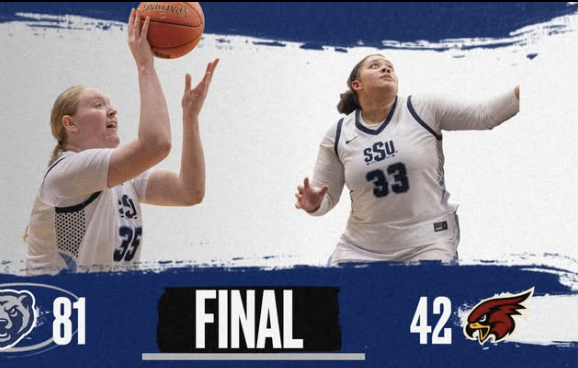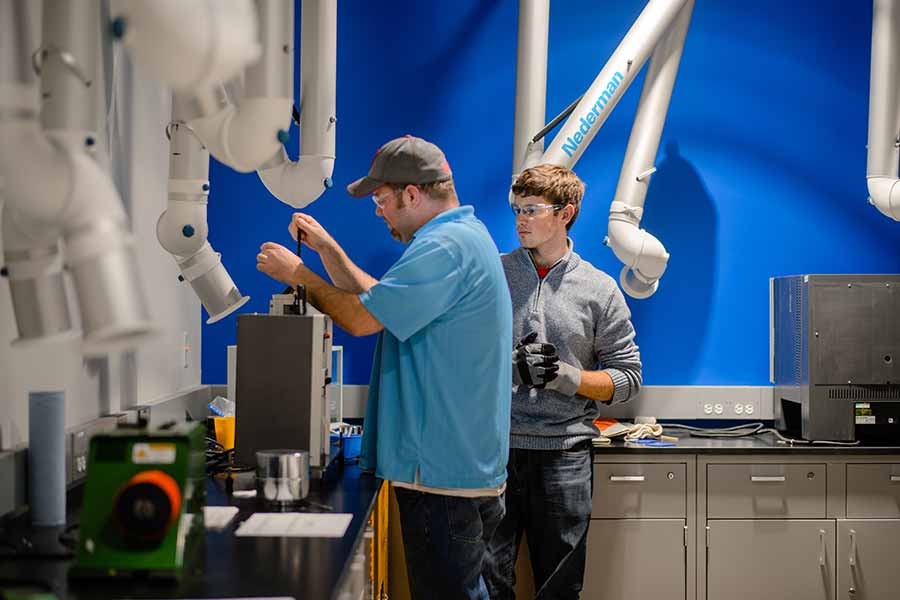“That’s a lot of money,” I told my sister when she mentioned how much her taxes were. I was sitting in the wooden spin chair at the little bar counter in the trailer where she lived. My sister is eight years older than me. With a job, a car, a house and a new boyfriend, I thought she was set for life. I didn’t realize how much life cost.
“Yeah, well,” she sighed. “The more money you make, the more they take.”
I wasn’t even in high school yet, but I knew that taxes were a scary thing. My sister was a semester away from graduating college when she dropped the other truth bomb on me: “Wait until I tell you about the student loans I’ve taken out.” When my eyes widened, she laughed. “It sucks, but some things cost money. Same goes for buying a car or a house. They’re an investment in your future.”
I don’t quite remember why I had walked down the short gravel path from my house to my sister’s trailer at the time. Or even exactly how the conversation had gone. But I do remember her talking to me about making investments in your future. And also, a few minutes after that conversation, I was about to meet her boyfriend for the first time. Still, the thought of taking out loans to go to college stuck with me to this day.
The cost of college attendance varies drastically from university to university, situation to situation. At Shawnee State University, if you’re taking out student loans, you’re probably taking out less than students at some other universities. About 95% of Shawnee students receive financial aid. That doesn’t mean that student debt isn’t still a kicker though. Not only are you living with that debt, but you may accrue some other money-stealers while you’re paying off that debt.
Take my other sister’s fiancé, for example. Austin Jewett graduated from Shawnee in 2020. A year later, he had his first kid. Then another kid in 2023. Then he bought a house. Now he has two cars. And his third daughter is due in September. However, he doesn’t necessarily think his student debt is a bad thing.
“My stance on it,” he commented while we sat cross-legged on the floor of my room, his daughters running rampant and screaming in the living room below us. “There have been more benefits than there have been negatives out of [student loans], definitely.” He simply summed his student debt up in two words: Worth it.
Because of his associate degree in electromechanical engineering, my soon-to-be brother-in-law is currently working at Pixelle Specialty Solutions as an electrical maintenance planner. I always hear my family talking about how he’s making “good money,” especially for a 23 year-old.
Personally, as a junior at Shawnee, I’ve been lucky enough that I haven’t had to take out any loans yet. Unlike Austin, whose debt was sitting at around 12 grand when he first graduated. According to Shawnee’s estimated cost of attendance in 2020, he should’ve expected to pay about $19,250 each year he attended.
Another junior at Shawnee, Allie Vallance, started taking out loans this past fall. As we discussed her experience with student loans, she was waiting for my brother—her boyfriend—to get home. As a freshman, the scholarships he’s gotten have paid for his tuition so far. Like me, he is currently debt-free.
But back to Allie. She currently works as a mobility tech at King’s Daughters Medical Center. She sees the student loans she’s taken out so far as an investment as well. Once she graduates with a bachelor’s degree in biomedical science, she’s going for her master’s degree in cardiovascular perfusion. She hopes she can negotiate for her student loans to be forgiven by the company she will end up working for.
The idea of student loans being an investment into your future seemed to be the conclusion. At least until I talked to my sister, who first put the idea of the investment in my mind.
Nearly a decade later, still working for the same place that she did in college, my sister’s stance has changed dramatically. And remember the new boyfriend? He’s now my brother-in-law.
Their little family consists of the two of them, their four cats and two dogs, who all live in a house they bought during the pandemic. Although neither husband nor wife is necessarily affected greatly by their student debt, looking back at the expenses from textbooks and the stipulations around paying student loans back triggered some anger.
My sister’s opinion now?
“Student loans are a scam.”
As the eldest child of our parents, Hayley was the first in our family to go to college. During her junior and senior years of high school, she attended the Scioto County Career Technical Center, where she was in the medical office management program. From there, she went into early placement her senior year, where she could work a job related to her program instead of attending school. Once she got hired at the Portsmouth Vision Center, Hayley worked her way through the remainder of high school and then into college. Once she graduated with a bachelor’s in business management in 2017, she stayed on at PVC, eventually taking the title of office manager.
Now married to Jonas Smith and also working at Blossom Pediatric Therapy Partners, Hayley’s opinions have changed when it comes to seeing student debt as an investment.
“We bought a home during the pandemic,” Hayley said as we sat around her kitchen bar, just like we’d done years ago in her trailer. She templed her fingers, ready to blow my mind with something I didn’t already know about the house. “And U.S. Bank did not want to give us a mortgage because we had student loan debt.”
“Seriously?” Out of all the things she could have said happened because of student debt, I did not think that it would have been trouble with the mortgage of her house.
How did they get around it? A different loan.
As we were discussing this, the Ring doorbell went off, triggered by her husband walking in. He needed a towel to finish cleaning off the lawn mower outside.
“I usually don’t have people I interview get up and leave halfway through,” I mumbled to myself. Luckily, she quickly returned and sat back down next to me.
“All right, kid,” Jonas shouted from the doorway a room away.
“She’s in the middle of my interview!” My sister quipped. “But you can come in here,” she said, inviting her husband into their own kitchen.
To finish up with Hayley, I simply asked, “Overall, do you think the debt was worth the degree?”
After three seconds of silence, I chuckled at her hesitation. In my mind, going into this interview, she had such a positive outlook on what student debt has allowed her to accomplish. And now, she hesitates when answering.
“I guess so,” she finally answered with a shrug and a laugh of her own.
Hayley also wanted to make it apparent that she doesn’t have as much debt as others. To me, at least, debt is still debt. $5,853 is still $5,853. But it doesn’t just stop there. There’s interest too. Of the $13.03 she pays every month, $5.15 is toward the loan she’s paying off. The remaining $7.88 is all interest.
It should be noted that during the pandemic, student loans were put on hold. People could still pay off their debt, and interest wouldn’t accrue. But if you don’t have to pay, then you won’t want to pay. At least this was the case for Austin, Hayley and Jonas.
If you’ve never had student debt, you may be thinking, “Why didn’t they just pay it all off when it wasn’t gathering interest?” Well, that’s what I thought, anyway.
“It was extra money that I didn’t have to pay,” Jonas simply stated, sitting in the interview seat my sister had vacated though she hadn’t moved far. As a 2016 civil engineering graduate from OSU, his debt is twice that of his wife’s. “It was a bill that was on hold, so that was nice.”
Of course, you can’t talk about student loans without mentioning President Biden’s student loan forgiveness. Billions of dollars in student loan debt have been forgiven. But could someone from SSU or OSU be eligible?
Well, it depends.
“I would be [eligible] when my loan is paid off,” Jonas laughed. “It’s not a joke.”
With about $12,000 in student debt, Jonas has to pay it off in no less than 10 years. Even with my sister’s $6,000, if she pays before the deadline, she’s faced with a penalty. Not to mention, because she took out the loans so young, it’s the oldest charge on her credit report. Once she pays it off, her credit goes down significantly.
Although they’re both in the same boat, Jonas has a more optimistic outlook on how student debt has affected his life.
“The problem is not with student debt,” he shrugged. “It’s with the cost of college. I don’t think there’s an issue with people taking out money to pay for college on principle, but college is becoming so expensive that the amount you’re required to take out is what really causes the issue.” He sighed. “Like when books cost hundreds of dollars per semester.”
As if it were her trigger word, my sister set the conversation all downhill from there with textbook prices.
“I had an accounting book that was over 400 [dollars],” Hayley chimed in from where she was leaning against the sink behind her husband.
“And they require you to always have the new one!” Jonas added.
My sister pulled up the cost of some of those textbooks from her Amazon order history:
Two books for a class her professor never showed up to一$61.
A microeconomics book that was bought used一$85.99.
Income tax book that was “opened twice the entire semester”一$180.
Human resources and healthcare rental一$19.05.
Loose-leaf book for her capstone一$125.72.
Legal environment book that she still owns一$86.19.
“Giraffes Can’t Dance”一well, that one wasn’t necessarily for a class.
“My textbooks were always several hundred dollars each,” Jonas included. “I would not be surprised if colleges have partnerships with these textbook companies.”
Without going down that rabbit hole, I think it’s safe to say that when it comes to student loans, to each their own. People’s thoughts and opinions vary widely, sometimes even changing in a few years.
So, are student loans worth the degree?
Depends on who you ask.





